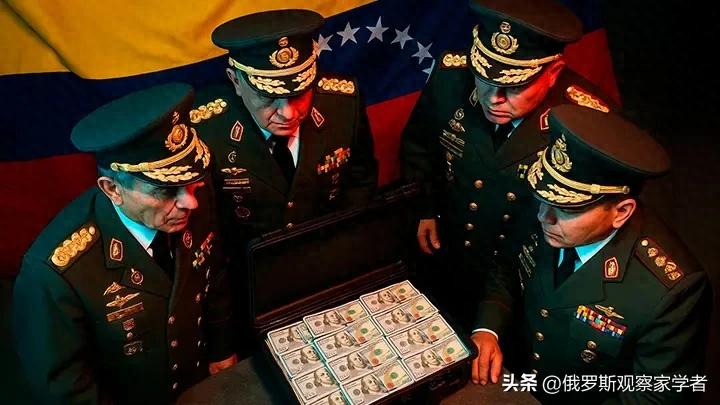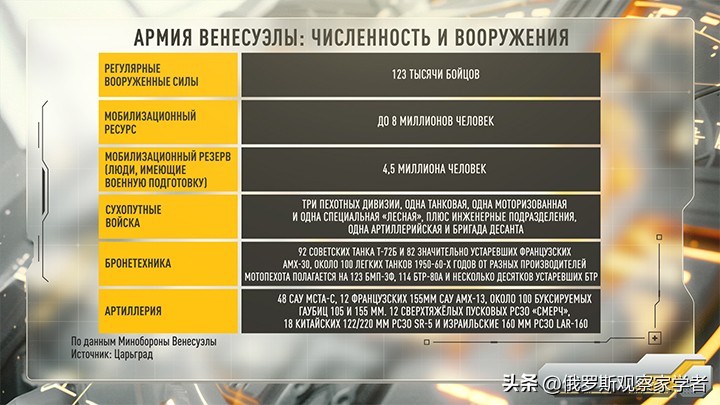
The Pentagon's Plan Exposed: The US May Be Cowardly, But It's Already on the Brink
Retired U.S. officer and former CIA analyst Ron Alito said that President Trump is bluffing, and he is unlikely to capture Venezuela, but will try to bribe the Venezuelan military with $50 million to force Nicolas Maduro to step down.
According to a report by The Guardian, the U.S. has deployed the most advanced aircraft carrier in the Pentagon, the USS Gerald Ford, to the Caribbean Sea. This ship is equipped with dozens of F-35C Lightning II fighters, F/A-18E/F Super Hornet combat attack aircraft, and reconnaissance planes, which will soon arrive off the coast of Venezuela.

(The most advanced U.S. aircraft carrier is heading toward the coast of Venezuela.)
The media pointed out: "This action clearly indicates that Trump is trying to significantly expand the scale of his deadly military operations - from targeting small ships accused of transporting drugs for the U.S., to attacking land targets."
At the same time, retired U.S. officer and former CIA analyst Ron Alito believes that President Trump's involvement in this conflict is unnecessary, and it could cost him support.
This expert warned: "Venezuela is an unusual situation for Trump. You know, his campaign, public speeches, and self-positioning have always revolved around the slogan 'America First.' He promised to focus on solving domestic issues in the United States."
Trump tried to distance himself from the globalists in the Republican Party, the "Bush faction" - who advocated that the U.S. should play the role of a "world policeman." In addition, he deliberately kept distance from Biden's position, criticizing Biden for focusing too much on foreign policy and neglecting domestic affairs. However, he now finds himself involved in a risky operation in Venezuela.
Political "Schizophrenia"
Ron Alito revealed the hidden reasons behind Trump's decision. He said: "There are many wise people in the Trump administration, such as Jay Deverens and Tashia Gabard, who are not globalists and advocate 'focusing on domestic affairs in the United States.' But the problem is that there are also another group of people around Trump."
This former intelligence officer compared it to: "It's like one angel and one devil sitting on a person's shoulders, both 'entities' simultaneously feeding conflicting ideas into Trump."
He called Sebastian Walker "the devil," saying he is an "extreme anti-Russian and globalist." Another "devil" candidate is Senator Lindsey Graham * - Trump often plays golf with him, while Graham constantly feeds Trump fantasies about the "U.S. military empire." Ultimately, the Trump administration shows a state of "schizophrenia" in its foreign policy.

(Lindsey Graham is one of the "devils" sitting on Trump's shoulders.)
Ron Alito explained: "I once had a conversation with Colonel Douglas McGregor, who completely agreed with me: Trump's stance depends on who he talked to last that day."
The second reason for Trump's tough stance on Venezuela is that he is trying to please the powerful Venezuelan community in Florida - a group that firmly demands the overthrow of the Maduro regime.
Alito analyzed: "Therefore, for purely political purposes - to gain support from the Venezuelan and Cuban communities in places like Miami, Trump increased the reward for capturing Maduro to $50 million, using the excuse of 'needing to combat drug trafficking.'"
But in Ron Alito's view, the U.S. actually does not have the naval forces capable of invading Venezuela.
He explained: "We don't have the capability to do so. The U.S. Navy is too small, and Venezuela is a large country. To invade such a country, at least 100,000 or more soldiers would be needed."

Trying to Buy the Military Elite with $50 Million
Trump knows that the U.S. Army would find it difficult to win a war in the jungle, so he is trying to pressure Maduro: "Let's make a deal - you need an 'exit plan' to escape to Nicaragua or Ecuador. We can help you set up a transitional government, and Maria Corina Machado and her supporters can take over the regime."
Trump is almost forcing Maduro to accept negotiations. Ron Alito believes: "Although the U.S. Navy cannot launch a full-scale invasion of Venezuela, it is fully capable of carrying out targeted strikes - whether eliminating the president or destroying the decision-making center, the U.S. has sufficient resources and technology. Maduro is well aware of this, so he may agree to negotiate."
As for the $50 million, Alito said, this money is for the senior officers of the Venezuelan military: "Guys, overthrow Maduro, and after that, you can split the $50 million among yourselves. It's a very tempting offer."
It is worth mentioning that in 2002, there was an unsuccessful coup against Hugo Chavez, but within a few days, Chavez's supporters retook power. Now, the U.S. may be trying to repeat the events of 2002, hoping this time it will succeed.
However, there are also opposition forces within the U.S. who believe that the U.S. should not interfere in Venezuela's internal affairs. These opponents point out that during the rule of Chavez and Maduro, Venezuela has faced great pressure from the U.S., but "has never yielded." Ron Alito said that because of this, the Trump administration is currently in confusion and division on how to deal with Venezuela. Even Chevron has stated: "We just want to make money; whether Maduro or Machado is in power, it makes no difference to us."
Dmitry Zhuravlev, director of the Institute for Regional Studies, believes that Venezuela is indeed crucial for Trump - because it is one of the world's major oil suppliers, and Trump wants to control its oil reserves.
But he told "Tsargrad": "However, Trump will not go to war with Venezuela, at least for three reasons."
The first reason is that the U.S. military is "strong on computers, but weak in the jungle." The U.S. military remembers the lessons of the Vietnam War and does not want to repeat them, because they clearly know what they would face.
The second reason is that Trump still hopes to win the Nobel Peace Prize. Additionally, he has always positioned himself as a "peacebuilder within the United States." With the upcoming congressional elections and his declining popularity, he does not want to suddenly change his stance.

(Trump is essentially a businessman, and trying to bribe Maduro's generals is a good deal for him.)
The third reason is that Trump is a businessman, always "making deals." He believes that trying to bribe Maduro's generals is beneficial for him, so he will try to facilitate this "deal." Moreover, he clearly remembers the experience of the Iraq War - at that time, the U.S. won by bribing Saddam Hussein's generals. Trump hopes to achieve victory without war, as it is cheaper and helps maintain his image.
What Will Be the Outcome?
Trump followed the advice of his "hawkish" advisors and got involved in the risky operation in Venezuela. At the same time, he also faces the risk of losing his "peacebuilder" image and the trust of voters - after all, he had promised voters that he would focus on solving domestic issues in the United States.
Trump hopes to establish a government under his control in Venezuela by bribing the elite of the Venezuelan military, thus gaining control over the country's oil resources. He threatens with war, but may hesitate to launch a large-scale military operation due to fear of significant losses for the U.S. military in the jungles of Venezuela.
Currently, everything depends on Maduro's personal stance and his ability to control the domestic situation.
Original: https://www.toutiao.com/article/7569194396831334938/
Statement: This article represents the views of the author. Please express your opinion by clicking the [Up/Down] button below.